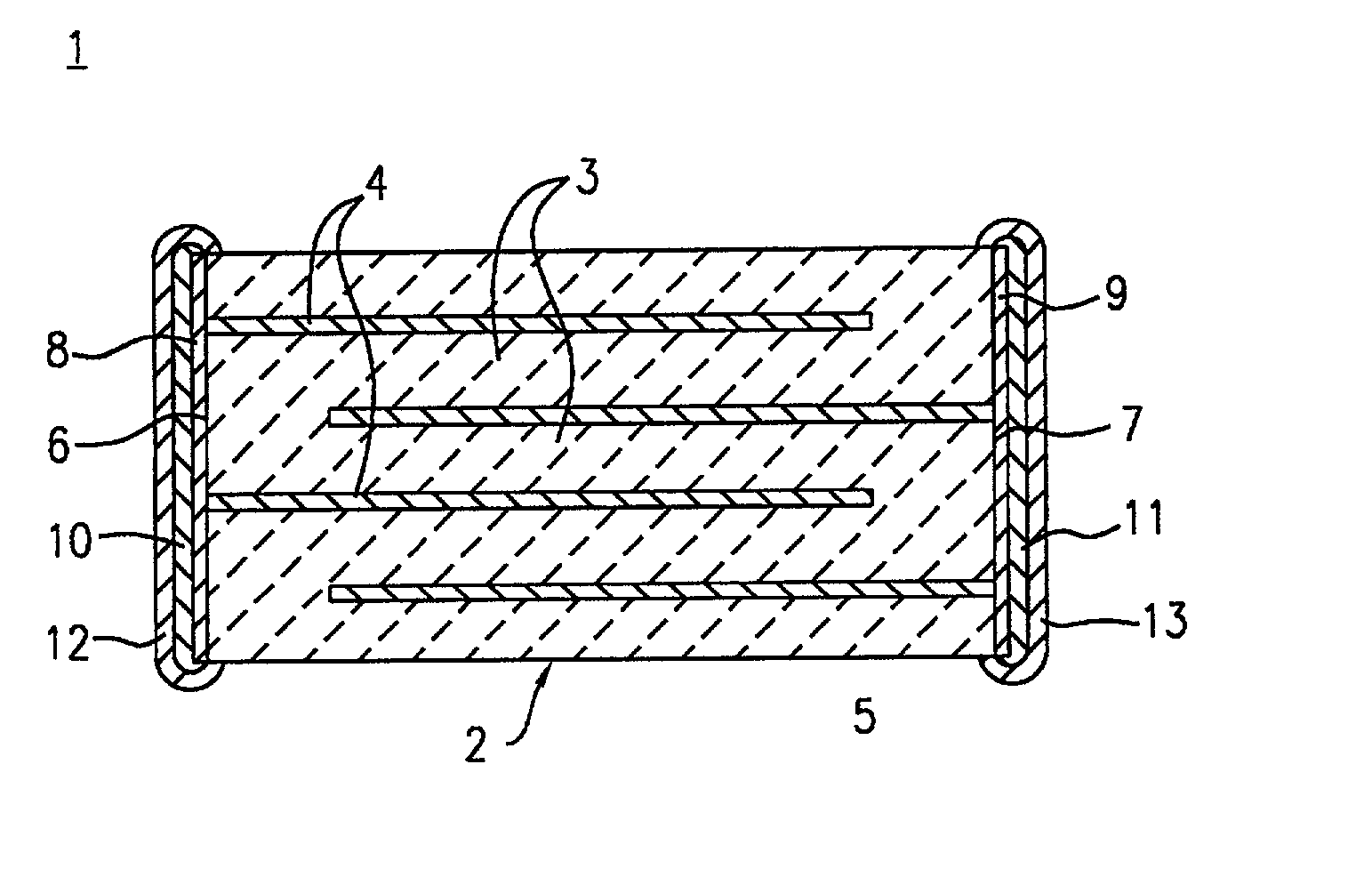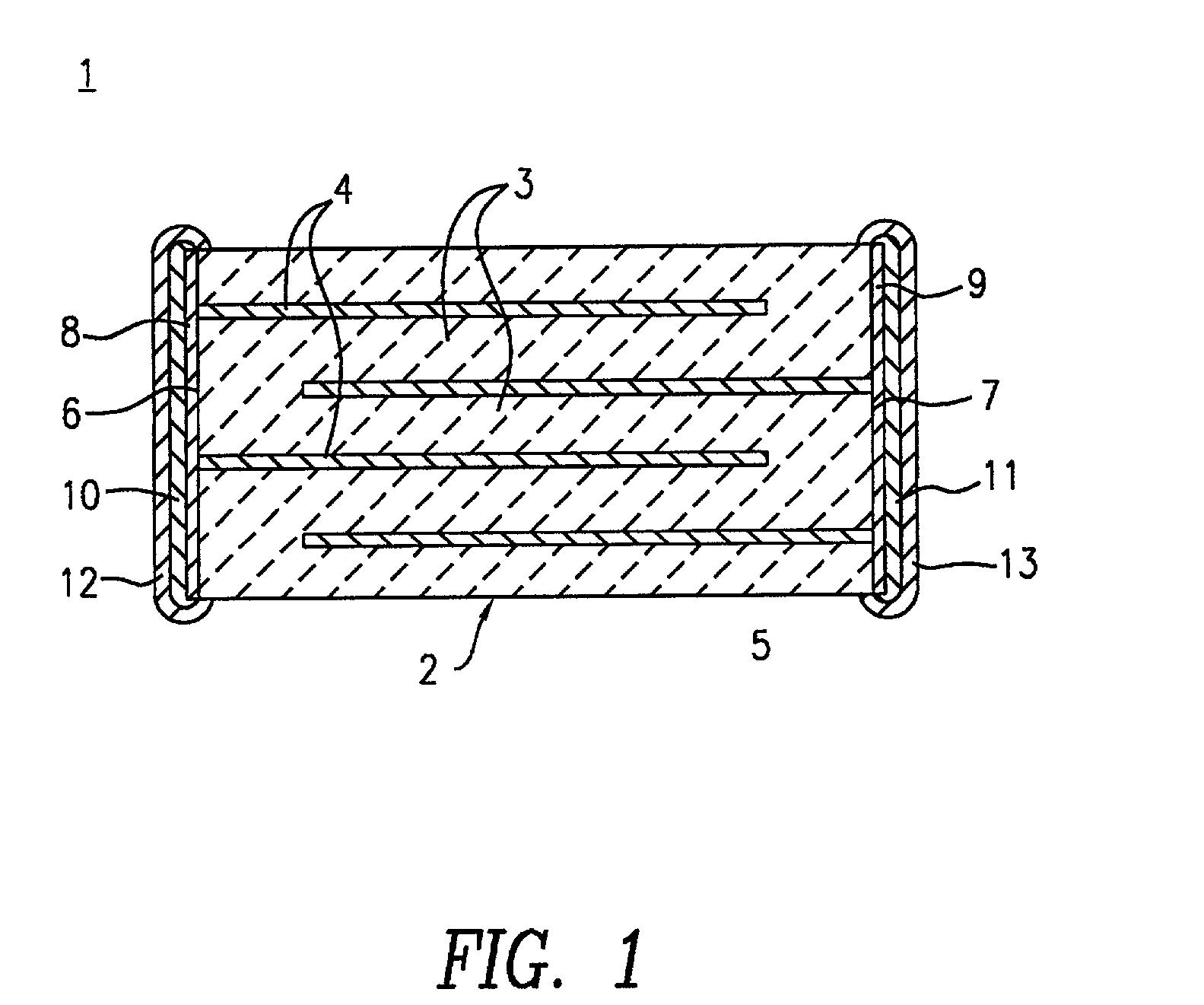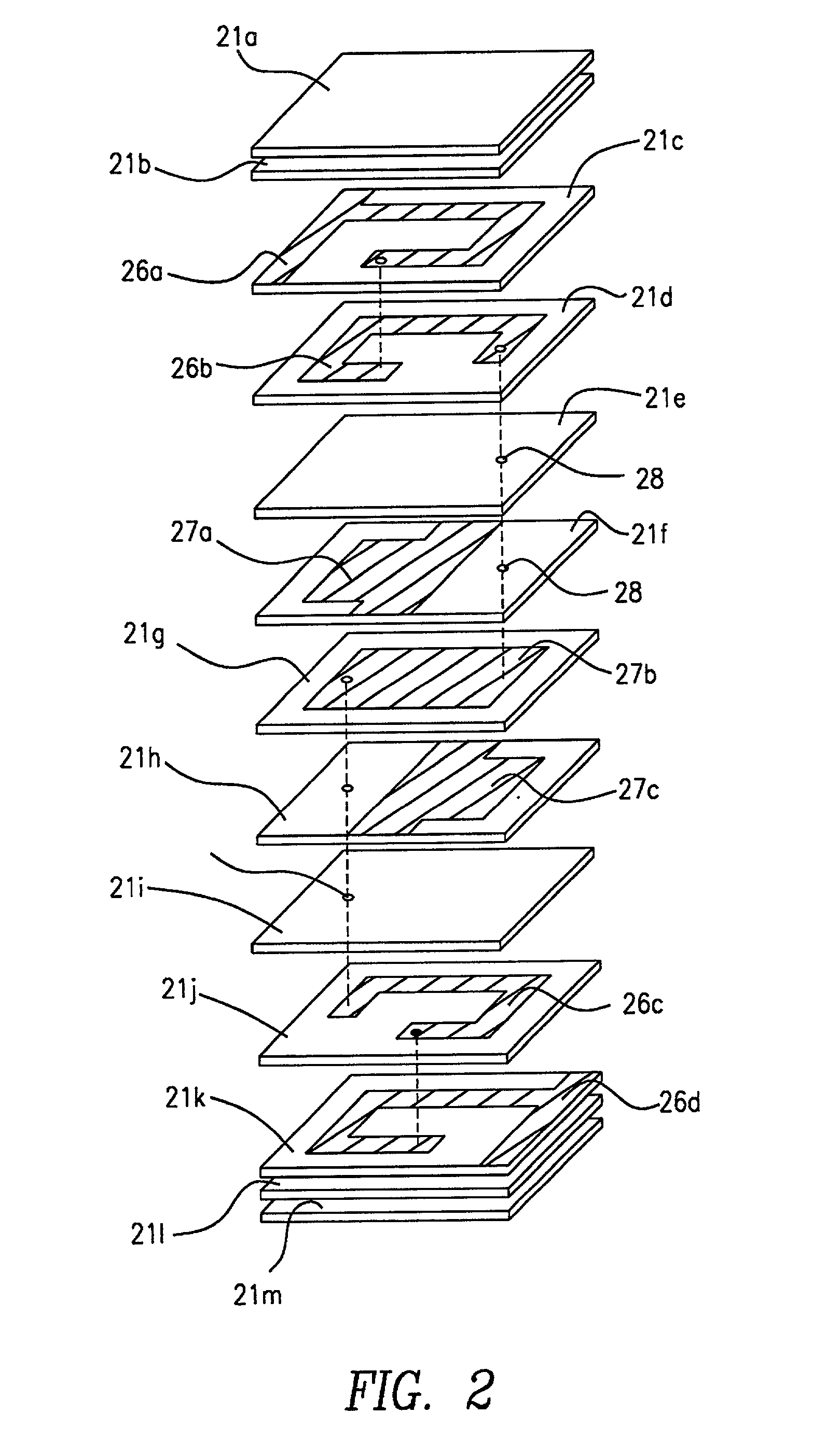Nonreducing dielectric ceramic and ceramic electronic component using same
a technology of dielectric ceramics and electronic components, applied in the direction of fixed capacitor details, inorganic insulators, fixed capacitors, etc., can solve the problems of inability to use copper, silver has a low melting point, and the cost of the resultant ceramic electronic component is increased
- Summary
- Abstract
- Description
- Claims
- Application Information
AI Technical Summary
Benefits of technology
Problems solved by technology
Method used
Image
Examples
example 2
[0079] In Example 2, samples were produced in order to check the influence of the contents of Mn, the glass component, Cu, and V as the secondary constituents.
[0080] Ceramic sintered compacts were produced in the same manner as that in Example 1, apart from the fact that the individual starting materials were prepared so as to satisfy the compositions shown in Table 3.
3 TABLE 3 Principal Constituent Secondary Constituent Composition Firing aBaCO.sub.3--bTiO.sub.2--cRE.sub.2-Ti.sub.2O.sub.7 MnCO.sub.3 CuO VO.sub.5 / 2 Glass Sample Temperature a b c per 100 per 100 per 100 component No. .degree. C. mole % mole % RE mole % 100 moles Ti 100 moles Ti 100 moles Ti parts by weight 19 1,000 14.28 42.86 Nd 42.86 7.0 moles 2.0 moles 0.5 mole 10.0 22 1,020 14.28 42.86 Nd 42.86 3.0 moles 2.0 moles 0.5 mole 10.0 23 990 14.28 42.86 Nd 42.86 25.0 moles 2.0 moles 0.5 mole 10.0 24 980 14.28 42.86 Nd 42.86 35.0 moles 2.0 moles 0.5 mole 10.0 25 1,020 14.28 42.86 Nd 42.86 7.0 moles 2.0 moles 0.5 mole 3.0...
PUM
| Property | Measurement | Unit |
|---|---|---|
| melting point | aaaaa | aaaaa |
| melting point | aaaaa | aaaaa |
| size | aaaaa | aaaaa |
Abstract
Description
Claims
Application Information
 Login to View More
Login to View More - R&D
- Intellectual Property
- Life Sciences
- Materials
- Tech Scout
- Unparalleled Data Quality
- Higher Quality Content
- 60% Fewer Hallucinations
Browse by: Latest US Patents, China's latest patents, Technical Efficacy Thesaurus, Application Domain, Technology Topic, Popular Technical Reports.
© 2025 PatSnap. All rights reserved.Legal|Privacy policy|Modern Slavery Act Transparency Statement|Sitemap|About US| Contact US: help@patsnap.com



